














Explore opportunities to join an internationally respected, collegial team of specialists in a progressive and multidisciplinary patient care model. Our Neurological Institute boasts career tracks focusing on several paths, including master clinicians, clinician educators, academic clinicians and clinician scientists. Our dynamic positions command a competitive salary enhanced by a generous benefits package.
Current career opportunities:
• General Neurology & Neurohospitalist
• Vascular Neurology
• Sleep Neurology
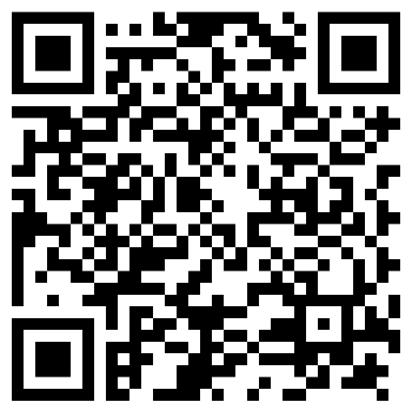
Visit clevelandclinic.org/aancareers to learn more.
• Behavioral Neurology
• Movement Disorders Neurology
• Headache & Facial Pain Neurology
Visit booth #741 and meet our team.


By now, you’ve probably heard a lot about artificial intelligence, ranging from the fantastic to the terrifying. For physicians, potential impacts for this world-changing technology can hardly be overstated. Artificial intelligence in different forms is poised to be integrated (or already has been) into such disparate areas of medicine as research assistance, patient scheduling and interaction, testing and diagnosis, documentation, and billing.
Whether you’re excited or alarmed by this evolution—or a little of both—it’s already underway. The best thing to do now is to learn how to harness artificial intelligence so you can benefit from its power.
If you’ve applied for jobs recently, you may already have experienced some aspect of artificial intelligence at play. For example, some applicant tracking systems (ATS) are now augmented with artificial intelligence tools. ATS
programs are used by large employers to sort incoming job applications. By adding AI features, some recruiters can manipulate the systems to work more efficiently to find appropriate candidates.
Another way employers use AI is by creating semiinteractive interviews where candidates answer questions on-screen for later review by the recruiter. Whether this will catch on in medicine is hard to say, given the intensely personal nature of the doctor’s role both as a colleague and with patients. At this stage, it’s still difficult for AI tools to accurately evaluate such “human” characteristics while reviewing applicants.
Perhaps the most subtle use of AI by recruiters is in the process of seeking candidates in the first place. Depending on the tools they’re using, recruiters can identify potential applicants for current jobs by programming AI-driven software to review LinkedIn or other candidate-focused boards in search of matches for specific keywords. The software can then send a “personalized” invitation to the candidate to apply for a position. These invitations may not be obvious as AI products, since they often include a real person’s name and contact information for response.
There are undoubtedly more ways that recruiters are using artificial intelligence to find or vet candidates for open positions. Or, if not, there will be soon. In the meantime, the development of AI tools available for candidate use has been increasing exponentially in just a short time.
There are dozens of AI-driven software tools available for job seekers now; in the near future that number could climb into the hundreds. For the moment, they fall loosely into the following categories:
Some programs provide interactive processes to help you build a CV, while others recommend changes to word choice or sentence structure that will give your document more impact. Perhaps the most popular programs are those, such as Jobscan, that check your document against specific job postings and then suggest or make revisions to ensure your information matches the requirements. At this stage, most user reviews describe the end product of these tools as being pretty good, but not excellent—which means the job seeker still needs to be involved before sending an AI-revised CV to employers.
One of the most well-known tools currently available for multiple purposes, including job searching, is ChatGPT. This is actually one of several in the same class of software, made by different companies. Using a process known as generative AI, these applications generate
writing based on prompts provided by the user. For example, if your prompt said, “Write a cover letter for a general neurology position in a hospital, describing my strengths in providing patient care and interpreting diagnostic tests,” that’s exactly what the software would do. Likewise, you could “prompt” the system to write you a thank-you letter post-interview, or a letter of selfintroduction to help with your networking. Users of this technology describe the end product as a good starting point for them to edit, but not usually as a finished product ready to send.
Programs in this category are designed to provide an instant feedback loop on candidate answers to specific interview questions. In general, the program will generate the questions—usually based on input regarding specific jobs—and then review the candidate’s answer. The more complex programs will delve into non-verbals as well, providing feedback on candidate posture and clothing, for example. As a rule, the more features offered, the more the process will cost. One option, Google Interview Warmup, is relatively simple but also completely free, making it a good starting place to learn about this kind of tool.


Health, New
Current neurology opportunities include:
• Academic General Neurologist – Lebanon, NH
• General Neurologist – Keene, NH
• General Neurologist – Southern New Hampshire – Manchester, NH
• General Neurology Outpatient APP – Lebanon, NH
• Headache Medicine Physician – Lebanon, NH
• Inpatient Epilepsy APP – Lebanon, NH
• Section Chief – Headache Medicine – Lebanon, NH
• Neurohospitalist and Stroke Physician – Lebanon, NH
• Neuromuscular Medicine Physician – Lebanon, NH
• Outpatient Stroke APP – Lebanon, NH
• Outpatient Headache Clinic APP – Lebanon, NH
• Stroke APP – Lebanon, NH
• Stroke Neurologist – Lebanon, NH
• Teleneurology – Remote
• Four seasons and a spectacular outdoor lifestyle
• Easy access to major cities, airports and cultural amenities
• Congestion-free commuting
• Easy access to mountains, lakes, skiing and the seacoast
• Focus on local living with safe schools and good housing
• No sales or state income tax in New Hampshire
As you might guess, this short list doesn’t cover all the AI job search tools currently or soon to be on the market. You can also find AI-driven programs to organize your job search, such as Notion; or to help you identify networking contacts, such as LoopCV; as well as programs such as Massive that will create and automatically send applications for jobs without you being involved at all.
Are you thinking about using artificial intelligence to assist with your job search? If so, the following tips will help ensure your experience is a good one.
Before signing up or paying for an AI tool online, check for user reviews or comments. This can help you choose between multiple programs that seem to do the same thing.
AI tools designed to review your resume don’t need your contact information or medical license numbers to perform that function. Clearing out personal data is sometimes called “anonymizing” the document. While

somewhat tedious, the practice is a good precaution.
You may have heard the term “AI hallucination.” That’s when an AI tool makes up data or produces incorrect or misleading results. If you rely on artificial intelligence to write something for you, review carefully to ensure there are no “hallucinations” in your document.
Speaking of AI-generated cover letters—does yours sound like a computer wrote it? That can happen easily, so be sure to add personal touches as you edit for accuracy.
It’s fine to build your CV with AI, as long as you review it carefully for complete and accurate information. But don’t stop there—your CV should also be reviewed for the intangibles, such as tone, strategy, and visual appeal. That’s where the AAN and the CV review process come in. Once you’ve created your job seeker profile, you’ll find information for accessing the CV review service. And don’t forget that your job seeker profile also makes you eligible for job matching with current employers and openings.
CommonSpirit Health® is a not-for-profit, faith-based, academic health system dedicated to advancing health for all people. With approximately 175,000 employees and 25,000 physicians and advanced practice providers, CommonSpirit operates 140 hospitals and more than 2,200 care centers serving sites across 24 states. In our markets, you may know us as CHI Health, Dignity Health, or Virginia Mason Franciscan Health.
We are seeking Neurology Physicians and Advanced Practice Providers (APP) to join our affiliated groups in the following states:
AAN Annual Meeting Exhibitor Career Fair Neighborhood Booth #508

Apply online at providers.commonspirit.careers

Whether you start with a job search process or something related to your medical training and practice, this is a good time to jump into the AI waters. Learning to use the tools can give you a head start for future employers who are bound to start asking: “Have you used artificial intelligence yet?” You’re going to love being able to say, “Yes, and here’s what I’ve learned…”
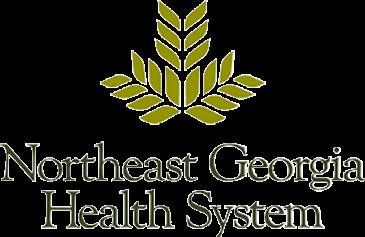
Neurology - Outpatient
Your Life’s Work in Northeast Georgia Dawsonville, GA – North of Atlanta
• Specialists in Epilepsy, Movement Disorders, MS, Concussion, Cognitive and Migraines.
• EMR Platform – EPIC
• Practice General Neurology plus your interest. Cognitive interests are needed.
• EMG/ EEG labs
• 24/7 Inpatient & Critical Care Medicine are also part of this multispecialty group.
• Group currently consists of 10 Outpatient Neurologists and 10 APPs plus 4 Neuro-Hospitalist and 4 hospital -based Nurse Practitioners.
• Interventional Neurology started in 2020.
• NGHS currently has GME programs in IM, FM, GS, EM and PSY, plus Cardiology and Palliative Fellowships
Contact Marshall Poole, Senior Physician Recruiter with NGPG @ marshall.poole@nghs.com






Reconnect with what matters most in your neurology career.














A drive to heal inspires our physicians to pursue medical excellence. But it’s our purpose that truly allows us to change lives. SSM Health seeks exceptional neurologists to join our growing integrated health system in academic or community medicine positions. You will practice medicine that is restoring health, instilling hope, and transforming care when and where it’s most needed.


























• Four-day work week positions available
• Lucrative sign-on bonus and relocation









• Annual CME/business allowance available
• Subspecialty interests can be pursued
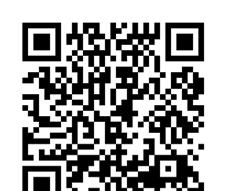






To learn more, please contact: Jody.Chellevold@ssmhealth.com or visit joinssmhealth.com




















team in Roanoke,
Available Opportunities
» Dementia/Neurodegenerative
» General Ambulatory Neurology
» Movement Disorder
» MS
» Neuro Ophthalmology
As a member of the Neurology faculty, you will have an appointment at the Virginia Tech Carilion School of Medicine located on our campus.





Neurology Opportunities at Sanford Health
Sanford Health is seeking BC/BE Neurology physicians to join our practice in the following locations:
Bemidji, MN – General
For more information contact : Celia Beck (218) 333-5056 celia.beck@sanfordhealth.org
Bismarck, ND –Neuro-Hospitalist & General
For more information contact: Brandon Leier (701) 323-2094 brandon.leier@sanfordhealth.org
Fargo, ND – General, Dementia, Epilepsy, Stroke, NeuroHospitalist, Neuromuscular, Multiple Sclerosis/ Neuroimmunology & Movement Disorders Fellowship Trained
For more information contact: Jenna Berlinger (701) 234-6510 jenna.berlinger@sanfordhealth.org
Sioux Falls, SD – General, Cognitive Behavioral, Multiple Sclerosis/ Neuroimmunology, and Stroke
For more information, contact: Deb Salava (605) 328-6993 debra.salava@sanfordhealth.org
Dedicated to the work of health and healing
Sanford Health, the largest rural health system in the United States, is dedicated to transforming the health care experience and providing access to world-class health care in America's heartland.
To learn more, scan the code sanfordcareers.com/ physicians


Join the only neurology practice in the north Idaho area which is growing rapidly to serve a growing population within north Idaho, western Montana, and eastern Washington.
Who we are looking for:
Kootenai Clinic Neurology in Coeur d ’Alene, ID is seeking a BC/BE Neurohospitalist to join a well established neurology group for a hospital employment opportunity. Ideal candidates will have trained in a vascular neurology fellowship or have strong stroke experience. Call coverage model i s 24/7 with 7 on/off rotation. A large Hospital Medicine service admits all patients, minimizing overnight calls and evaluations by the neurology consult service. R easonable daily working census to optimize patient centered care. Experience with managing general neurology, stroke and neurocritical care in an Idaho TSE level 2 designa ted stroke center. Working toward DNV primary stroke center designation in 2025. Advanced Practice Professional support and Level 3 epilepsy center providing E EG reading coverage. Large and comprehensive outpatient neurology practice to facilitate follow up care as well neuroradiology and surgery services.
Who we are:
Kootenai Health is northern Idaho ’s only regional referral health system and the largest employer with over 4,000 employees and over 700 medical staff. Our se rvice area includes the Panhandle of north Idaho, western Montana, and eastern Washington. The organization is an independent, not for profit, three hospital system, with an integrated multi specialty group practice, Kootenai Clinic spanning 30+ specialties at 30+ locations in two states. Koo tenai Health is nationally recognized for clinical excellence and recently designated as an ASC level II trauma center. Additional recognitions include Magnet designati on for nursing excellence since 2006, a Leapfrog A safety rating, and having achieved the Gallup Great Workplace Award five years in a row. Kootenai Health started the first graduate medical education opportunity in northern Idaho with a University of Washington affiliated Family Medicine Residency, in 2013.
Where we live:
Kootenai Health is located in Coeur d ’Alene, Idaho, a family oriented community that provides an outstanding quality of life with unlimited access to amazing year round activities with lakes, rivers, mountains, national forests, golf courses, ski resorts, bike trails, shopping, festivals , fairs, art galleries, unique bistros with elegant restaurants, resorts, and much more. Coeur d ’Alene is an outdoor enthusiast ’s paradise!
To learn more reach out to:
Brian Jerome at 208 625 4495


A good story will give you the foundation for at least five or six different behavioral questions.
If you’ve been to a job interview lately—as either the candidate or the interviewer—then you may be familiar with a style of question called “behavioral.” Behavioral interview questions are based on a principle of psychology which states, in essence, that how a person has acted in the past under certain conditions is a predictor of how he or she will respond in the future to the same conditions. Hence, when interviewers say, “Tell us about a patient you’ve treated who was difficult to relate to, and how you handled the situation,” what they’re really asking is: “How will you handle our difficult-to-manage patients?” So, you might wonder, why don’t they simply ask the question they really want answered? Because that would be too easy for the candidate to manipulate. A doctor could just answer with some kind of neat process, or claim that managing difficult patients hasn’t been a problem. It’s much harder to “game the answer” when asked to give an example. You can see why behavioral questions have taken root over the past decade or so: Interviewers love being able to assess candidates through the lens of their behavior. Unfortunately, not all interviewers are skilled in interpreting the answers; nor are candidates necessarily good storytellers. As the candidate, you can’t do much about your interviewer’s level of skill, but you certainly can increase your own. Here are five steps to help you develop compelling answers for behavioral interview questions.
This can seem tricky at first—how can you prepare an answer without knowing the question? You won’t be heartened to know there are lists floating around of the top 100 behavioral interview questions. One hundred! That’s obviously far too many stories to prepare before a meeting, especially when the typical interview may contain no more than three or four of this style of question. How would you ever know which questions they might ask? A better strategy is to reverse-engineer the problem: Instead of anticipating the question, start by identifying your ideal stories.
To do this, think deeply about the past five or eight years, to refresh your memory of internships, residency, fellowships, and any other training or field experience that you’ve had. Now ask yourself: When did you persevere during a challenging situation? When were your efforts pivotal to creating a successful outcome? When did you think of an improvement to a process or system that created good results for your team?
Once you have a few examples in mind of times when your work was particularly successful, you’ll have the basis for good stories.
STAR is a popular acronym which stands for Situation, Task, Action, Result. It’s a tool that can help you keep track of the parts of your story, and ensure that you have enough content to make an impact, while also guiding you to tell the story clearly. Here’s an example from a neurology fellow whose patient would not follow a treatment protocol, and how the physician handled the problem.
Patient continues activities that are harmful, and is not adopting behaviors that are healthy. The patient’s family is distraught and is asking for help convincing the patient to cooperate with the treatment plan.
The physician has several concerns to keep in mind, including patient confidentiality, the patient’s right to self-determination, the clinic’s liability, the overall goal of providing good care, etc.

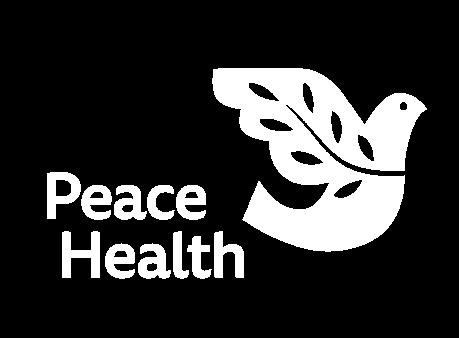
As a fellow still in training, the physician decided to bring the case forward for discussion and review, with the goal of receiving advice for handling the situation. The question of mental health care and therapy support for the patient was raised by the fellowship director, which gave the physician the idea of providing resources to the patient to access this assistance. The idea of a care conference with the family was also raised to let them express their concerns in the patient’s presence. The physician decided to take these steps.
The patient listened to the family’s concerns but also provided some insight about being uncooperative— behavior which was actually rooted in trying to maintain control. Although the patient turned down the option for mental health counseling, the care conference provided enough foundation for communication that the patient agreed to cooperate more fully. The doctor’s relationship with the patient also improved.
be more compelling when it’s spoken aloud.
Chicago, IL ( north & west suburbs)
Although the STAR story above is certainly clear, it’s not very relatable. It reads (and would sound) like a bare-bones recitation, which is hardly compelling in an interview. Here’s one way this STAR draft might sound when revised to be more conversational:
“When I was in my first month as a fellow, one of my first cases in outpatient care was a gentleman whose epilepsy treatment plan called for a fairly high level of personal responsibility. He was a smart man and not someone who seemed self-destructive, but he was pretty much rejecting every part of the plan. He’d agree to things in the clinic, then go home and do the opposite. I was already trying to figure out what to do when I started getting calls and emails from his family. His wife, especially, was very concerned and she was asking for a lot of detail about my conversations with him. I knew I couldn’t go down that path with her, but I needed to do something to manage the situation, while also trying to get him the care he needed. I decided to bring the case up with my fellowship director and I got some good advice. She reminded me of ways I could use a care conference and also brought up the idea of resources he could tap into for mental health counseling that might help him sort out his feelings about his epilepsy. In the end, we had a half-victory in that he agreed to the care conference, but he didn’t want to try the counseling. The conference was a home run, though, because it gave his family an opportunity to really open up about what his behavior was doing to them, and it prompted him to accept some parts of the treatment plan.
Endeavor Health Neurological Institute is the regions preeminent provider of advanced care for brain and spine conditions. We deliver patient care through a collaborative, multidisciplinary approach and the coordination of services involving more than 70 neurospecialists to diagnose and treat complex conditions involving the brain, spine, and peripheral nervous system.

Visit us at the AAN conference, San Diego, at Booth 313 and receive a free t shirt. We will be at the Java, Juice, Jobs Career Fair Tuesday, April 8 Marriott Marquis Ballroom 7a 9a.






I was also gratified to have a better relationship with him after that, I think because he trusted me and knew I was trying to provide good care while also listening to him.”
Although that story may look long when you see it printed as one big paragraph, when you time it out, you’ll see that it takes only a few minutes to tell. Adding pauses and intonation changes will increase the length but will be worth the tradeoff. That’s because a more natural sounding delivery will be memorable and interesting to the interviewer
A good story will give you the foundation for at least five or six different behavioral questions. Knowing this, you can prepare a handful of stories, perhaps five, with the confidence that you’ll be able to answer 25 or 30 different questions, just by reshaping the first few sentences of the story. For example, the story above could be used in its current form to answer, “Tell us about a difficult patient that you treated.” But with a little reshaping, it could also be used to answer, “When have you used a collaborative care process with a patient?” or “What have you done to gain a patient’s trust?” or even, “Tell us a situation you’re proud of from your fellowship.”
While you can’t be certain which questions your interviewers will ask, you can still practice telling your stories. The ideal process involves three steps: Typing the story into a word processing program so you can shape it easily; then writing it by hand so it lodges more firmly in your memory; and finally, saying it out loud a few times until you feel comfortable navigating the different parts of the story without getting lost. As you already know, the goal isn’t to memorize to the point of sounding rehearsed. But not practicing at all increases the risk of forgetting key points—or forgetting the story altogether. The middle ground is to be comfortable enough telling your story without notes that you know you won’t freeze when a question is asked.
As a final tip, remember that no matter how prepared you are, the interviewer could still ask a question you don’t have an answer for. If that happens, you can always punt: “I’ll need to come back to that question, as I’m drawing a blank for the moment.” Or even, “I don’t have an example that relates exactly, but I did have a situation come up with some similarities. When I was in my first month as a fellow, one of my first cases in outpatient care was a gentleman whose epilepsy treatment plan…” Sometimes it’s not so important that the story matches the question, as long as the story itself is informative and well-spoken. Try it and see: If you master the art of answering behavioral questions, you’ll experience a transformative effect in your interview process.

Child Neurology Opportunities at Sanford Health
Sanford Health is seeking BC/BE Child Neurology physicians to join our practice in the following locations:
Fargo, ND
Sanford Health is currently seeking BC/BE Child Neurologist/ Epileptologist to join our expansive pediatric specialty team at Sanford Children’s Hospital in Fargo, North Dakota.
For more information contact: Martty Trout
Lead Physician Recruiter (701) 234-6516 martty.trout@sanfordhealth.org
Sioux Falls, SD
Sanford Children's Specialty Clinic, a multi-specialty pediatric clinic, is seeking two BE/BC Child Neurologists with the ability to read EEG's.
For more information contact: Mary Jo Burkman
Lead Physician Recruiter (605) 328-6996 mary.jo.burkman@sanfordhealth.org
Dedicated to the work of health and healing
Sanford Health, the largest rural health system in the United States, is dedicated to transforming the health care experience and providing access to world-class health care in America's heartland.
Benefits:
• Competitive compensation and comprehensive benefit package
• Excellent retention incentive & relocation allowance
• Malpractice and tail coverage
• CME time and allowance
• Liaison with federal PSLF program
To learn more, scan the code sanfordcareers.com/ physicians

NEUROMUSULAR/TBI NEUROLOGIST NO WEEKENDS/NO EVENINGS NO ON CALL SALARY + BONUSES
JOB DETAILS:
This is a full-time on-site role for a Neuromuscular/TBI neurologist in Jacksonville, FL. The position will be responsible for diagnosis and treating patients with neurological conditions, with a focus on Spine Care/TBI using our own neurodiagnostic facility. Must be comfortable communicating with attorneys as legal work involved.
INTERESTED APPLICANTS SEND YOUR CV TO:
Shari Repka, MHA
Direct Line: 904-448-4174
Practice Administrator Emas Spine & Brain Specialists
Email: srepka@emasspineandbrain.com
Since 1995, Emas Spine & Brain Specialists has earned an outstanding reputation for personalized and attentive adult neurological care. Led by Mark K. Emas, M.D., we are widely regarded as the premier multi-disciplinary spine care practice in Jacksonville and Northeast Florida.
Dr. Emas and his colleagues specialize in treating conditions of the spine and other neurological conditions, including acquired Medical spine abnormalities, such as osteoarthritis, or trauma such as a motor vehicle or sports injury.




Neurologists with expertise in Clinical Neuromuscular, Cognitive/Behavioral Neurology, General Neurology, Movement Disorder, Neurohospitalist, and Stroke are invited to apply for open positions at Penn State Health Milton S. Hershey Medical Center, which is the academic medical center of the Penn State College of Medicine. This search represents part of a major institutional commitment to expansion of the neurosciences. The successful candidate will join the collegial faculty of Penn State Neurology, which is in an exciting period of growth under the leadership of the Chair, Krish Sathian, MBBS, PhD. Faculty rank will be commensurate with experience. Leadership opportunities are available to those with relevant experience.
• Medical degree – MD, DO, or foreign equivalent
• BC/BE in Neurology and relevant fellowship training or foreign equivalent
• Relevant clinical interest and expertise
• Excellent patient care abilities and interest in teaching
• Competitive compensation


Changing jobs can be a tough decision for any physician. Weighing the unknowns of a new role against the certainty of the current position is hard enough. Add in loyalty to the clinic or medical system and guilt over leaving patients or students, and the decision becomes even tougher. And it doesn’t help when our old friend inertia raises its head. Indeed, decision theory shows that even when the current situation is uncomfortable—or downright miserable—the pull of inertia can be overwhelming.
So, stay or go? Whichever way your decision leans, you’ll want to consider how an uncertain event has impacted— and will continue to impact—you and your family, as well
as the organization you’re with and the organizations you consider joining. Here are some things to think about when weighing the decision to change jobs.
If you operate a private practice or work in a clinic that has been hit hard by reduced income streams during an uncertain event, the decision to leave may not be entirely in your hands. You may be laid off or furloughed, for example, or you may find that you need to close your practice. In these cases, the question won’t be “if” but “when” you will leave your current role.
In other circumstances, the decision to leave may not be clear cut. For example, you might find that your current employer has needed to shift responsibilities on your team in a way that isn’t sustainable for you long term. You might be taking more call, for example. Or you might be assigned to duties that don’t use your neurology training, in order to fill staffing gaps elsewhere in the organization.
Of course, you might have very personal reasons influencing your decision to leave, such as family responsibilities that can’t be balanced with your current duties. Whatever your reasons for considering a change, it’s important to take the time to explore the situation. If your position is otherwise fulfilling, you would not want to give it up without verifying that the situation can’t be improved, or that you couldn’t ride it out until effects reverse course.

Advance your career with Advocate Health in Southeast Wisconsin, where you’ll enjoy top-tier compensation, a fulfilling Neurology practice, and the flexibility to live where you thrive—whether in the vibrant city of Milwaukee, the Chicago suburbs, or the scenic lake country of Wisconsin.
What we offer:
• Highly competitive compensation with market-leading packages
• Comprehensive benefits, including student loan forgiveness
• Seamless access to two international airports (Milwaukee & Chicago)
• Support for subspecialty interests and strong physician collaboration
• H-1B visa sponsorship available
• A perfect blend of lifestyle options –urban amenities, waterfront living, or suburban comfort

Or email Becky at Rebecca.Bork@aah.org
If you’ve changed jobs before, this won’t be new territory for you. Before jumping into the job market, it’s smart to think about what you really want in this next position. Here are some questions to consider:
• Do you want essentially the same work, but in a more secure environment?
• Do you want something quite different, perhaps due to changes in your personal vision and mission due to an unforeseen event?
• Are you seeking a new location, perhaps to be closer to extended family?
Along with clarifying your job goal, you will also need to set a timeline for the search process: When do you want to start your new job? Counting backwards three to five months from that date provides a reasonable starting point for your outreach. If you have strong leads or offers already, the timeline could be much shorter.
• As you get ready to launch your search, don’t forget to update your CV, as well as your job seeker profile in the AAN Neurology Career Center. Using resources like this will make the process more seamless and efficient.
Unless they’re already unemployed, most job seekers prefer securing their new job before giving notice to their current employer. There’s a risk of leaving the frying pan for the fire, as they say. You don’t want to join a new organization only to learn that they are facing the same issues as the one you’re leaving.
Questions to ask potential employers will vary, depending on your specific concerns, but they might include:
• How has the department/clinic fared during the unpredictable environment? Are patient numbers in my area of neurology holding steady?
• Have you made cuts to physician salaries or benefits?
• Have you furloughed any members of the team?
• Are vacation requests still being honored/funded?
• What requests have you made of the neurologists this year, in terms of changed duties?
• If revenues are down, what are your projections or plans for recovery?
• What would be the trajectory of my career should I join the department?
Whether you ask these questions directly of the chief or department chair during an interview or conduct research before committing to a meeting may depend on whether you have a reliable source for the information. Without someone close to the department who can tell you what’s happening there, it’s helpful to identify insiders to help develop your “read” of the situation with prospective employers.
Remember inertia? The more confusing or pressed our lives are, the more likely we are to choose not to make a change, even when one is clearly needed. If your plan calls for a job change and you’ve identified your timeline, then it’s time to chart your steps and move forward on your plan. Otherwise, you risk losing the momentum you’ve already gained by getting this far in the process.
On the other hand, if you haven’t clearly decided, then that’s the issue you’ll want to tackle. To do that, you can either seek the information you need to make the decision or give yourself permission to table the question until a specific date in the future. This will let you break the “I really should…” loop that might otherwise be playing in your head.
Whether you stay in your job as uncertainty plays out or leave for a position that better suits your situation, making the decision itself is bound to be good medicine. With so many other ambiguities taking up bandwidth right now, it’s good to feel clarity about your career.




Who’s hiring now? Who’s on site in San Diego?”
Visit Careers.AAN.com and search jobs by keyword AAN Annual Meeting to find hiring managers and faculty available to connect during the meeting.
Picture this: You’ve come to the American Academy of Neurology’s Annual Meeting, or any other neurology
conference, on a mission of sorts. You want to meet up with your colleagues, yes, and of course you want to learn about new developments in neurology. But in the back of your mind, there’s another thought brewing. What if you were to find a great job this week, or at least the lead for one? That’s not unrealistic at all, but it won’t just happen on its own. As Amy Schoch, Senior Manager, Career Services, says, “There are a lot of people in town for the Annual Meeting and there’s a lot of mutual interest. But candidates have to put in some work to make the connection.” As manager of the Academy’s Career Center—and a veteran of nearly two dozen AAN Annual Meetings and conferences—Schoch should know. She has been advising neurology candidates and employers on making job matches since 2001. Following are some of her best tips for job-seeking neurologists and junior members when attending an AAN-hosted event.
1. Use the AAN Career Center in advance of the conference. By reviewing active job postings, for example, a potential candidate can identify employers of interest and then make arrangements to meet up with someone from that organization during the event, says Schoch. Whether that contact is a hiring manager, a recruiter, or a fellow physician who currently works there, he or she could help the candidate make inroads while also providing information about the institution. To make the connection,
Schoch suggests simply sending an email to the contact in the posting asking if they want to set up a meeting during the conference.
Does this work? Schoch affirms that it does, sharing this anecdote: “I spoke with someone at the Annual Meeting two years ago and gave him that suggestion. Last year, he came back to the Career Center booth to say that he had followed the advice and had already had an interview at that year’s Annual Meeting. That tip helped him make the connection that landed him the interview.”
Schoch also advises a careful reading of the postings to reveal upcoming openings. “When a recruitment ad makes note of a new center or building,” she says, “you can anticipate that the institution is growing. Even if you’re not ready to start interviewing, arranging to talk with someone from that employer at the conference can give you a leg up on future opportunities.”
2. Visit the booth located in the Sails Pavilion - San Diego Convention Center, open 7:00 a.m. to 6:00 p.m. daily at the Annual Meeting, and make plans to attend Java, Juice and Jobs on Tuesday, April 8, from 7:00 a.m. to 9:00 a.m. Sponsored by the Career Center, Java, Juice and Jobs is ideal for attendees exploring a new career opportunity, whether they are already in practice or seeking their first job. The event is free for job seekers and features numerous employer booths, career advice, giveaways and a complimentary breakfast. At the main Career Center
booth, job seekers will find several items of interest. One is the chance to set up your Job Alert, a simple process that directs relevant postings to your inbox based on the criteria you select. For example, if you want to be alerted to stroke opportunities, you can set the alert to tell you when those positions are posted, saving you the effort of hunting for relevant ads on your own. Another feature of the booth is the live scroll of current job openings on a large screen, with a nearby kiosk to let you make a fast application for positions that catch your eye.
3. Visit the recruiters in the Exhibit Hall. If you’ve been to the Annual Meeting Exhibit Hall before, then you know that it can be a very active place. With more than a hundred exhibitors from pharmaceutical companies, software vendors, equipment suppliers and other organizations— many offering tempting coffee drinks and treats, along with an array of media displays—let’s just say it’s easy to be distracted while you’re there. Nevertheless, Schoch wants you to know there are always a couple dozen booths with recruiters and other representatives who are there to talk turkey on careers at a variety of organizations. It’s an excellent opportunity to pick up cards and literature that you can use to pursue a contact later. Or, if you’re not pressed for time, you can have insightful conversations right there at the booths, learning about current and future openings. You also can drop off your CV or complete a contact form, if you’d like someone to make an outreach to you after the conference. All in all, it’s a very efficient
A physician owned and led multi-specialty group offering the following:
• Opportunity to become a shareholder after one year
• 401(k) with dollar-for- dollar match, up to 6%
• Paid malpractice and licensure
• Relocation assistance
Neurology opportunities with Prevea Health:
• General Neurologist (opportunity to sub - specialize)
• Neuro Hospitalist
• Neuropsychologist
• Pediatric Neurologist
Practice openings available within our established medical group with locations in Green Bay and Sheboygan, Wisconsin.
For more information contact Dolly Willems
Senior Physician Recruiter. Dolly.Willems@prevea.com | (920)272 -1182
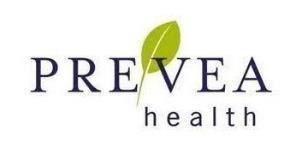

General Neurology | Headache | Dementia Neuroimmunology | Neuro Intensivist
Neuromuscular ALS Specialist
Chief of Child Neurology and Chief Neuroimmunology
Faculty appointment, competitive salary, signing bonus, relocation, and generous University benefit package.
Founded in 1966, the University of Rochester Medical Center ’s Department of Neurology includes over 100 faculty members in multiple subspecialty divisions and general neurology who are national leaders in research and in training the next generation of neurologists.
We are currently expanding in the Rochester area and the Finger Lakes region. As a member of our faculty, you ’ll enjoy a great professional career, mission-driven work and high quality of life.
Please email CV to Karol Marciano Karol_Marciano@URMC.Rochester.edu or call (414)-704-6578

way to connect with multiple organizations with relatively little effort.
For residents and fellows still in training, Schoch has this additional advice: Don’t think that your job search days are too far in the future to merit attention now. “It’s never too early to look,” she says. “While you’re completing training is the ideal time to connect with employers—that’s how you’ll know if you’re gaining the skills you’ll need in the workplace.” For example, Schoch notes, a resident or fellow who watches the job postings at the Career Center may notice a pattern of certain employers requesting EEG skills—a sure sign that those types of organizations would favor new graduates with EEG experience under their belts. By the same token, Junior members who network at the conference with doctors on staff at their target employers can gain insight into which procedures or patient experiences they should take extra care to learn while completing their training.
When you’re at the Annual Meeting this year, stop by the Career Center booth in the Sails Pavilion to pick-up a copy of the Career Compass job guide, pens, and “Neurology is my superpower” t-shirt for creating a job alert (while

supplies last). The process only takes about 60 seconds, Schoch notes, making that one of the best bargains at the meeting.
Swag notwithstanding, physicians who network know that the real gift of the Annual Meeting and other professional conferences is the opportunity to rub shoulders with colleagues and potential employers. Although it may seem as if jobs for neurologists are already plentiful, it’s networking that makes the difference when you want to break through the competition for a coveted role. As Schoch explains, if you take the time to meet recruiters in the Exhibit Hall, or to talk with employers directly after seeing their postings, you’ll have more opportunity to shape your next job to suit your goals and interests. And that doctor sitting next to you at the plenary session? He or she just might work at one of the places you’ve been considering. What better opportunity to learn firsthand what it would be like to work there or, better yet, to gain a referral for an upcoming opening? Whether you take Schoch’s advice and set up that meeting intentionally—or you tumble into the conversation by happenstance—you’ll find that professional conferences are just the ticket when it comes to job search networking.
New York City (Manhattan and Brooklyn), New York
We are seeking a Neurologist with a subspecialty in Neuromuscular Disorders to join our expanding private neurology practice in New York City. Our practice offers a friendly and supportive work environment, focusing exclusively on outpatient care with no on -call responsibilities
New York City offers a unique professional and personal lifestyle with top healthcare, diverse patients, world class dining, easy transportation, excellent schools, and endless recreation. It’s a vibrant place to work and live, with something for everyone.
Responsibilities: 1. Diagnose and treat neuromuscular disorders through patient history, examinations, and diagnostic tests. 2.Counsel patients on neuromuscular disorders and treatment options. 3.Monitor and address behavioral or cognitive side effects of treatments. 4.Maintain accurate and timely medical records. Perform and interpret NCS/EMG procedures
Requirements: Board Certification in Neurology (ABPN), Valid New York State medical license & Federal DEA license
For more information contact Dr. Yi Xie, yixie2006@gmail.com

Tri-State Neurology in Memphis, Tennessee is looking to hire adult neurologists. Specialty training is a plus.

We are a fast-paced, well-known, and respected neurology clinic. We offer a generous, guaranteed starting salary (first year $375-450k depending experience and request). You will also enjoy 100% membership from the first year. We provide vacation, health insurance, and a 401k retirement plan.
We do EEG, EMG, cognitive testing, autonomic function tests, skin biopsy, and more We also have a robust onsite infusion center Our office is well established and in a prime location of East Memphis.
Interested? Send your CV to James Wang, M.D., Ph.D., FAAN
Email: jjxwang@yahoo.com
Call/Text: 901 628 3898
tri stateneurology.com
J1 waiver is available.

Provides office-based general neurology services to new and established patients
Clinical interests/expertise may include: headaches, migraine, movement disorders, multiple sclerosis, epilepsy, dementia, extrapyramidal syndrome, Parkinson’s disease, stroke
On-site Neurodiagnostic testing and imaging, Sleep diagnostics, Cardiology, and Pulmonary
Rehabilitation services including Speech, Physical, and Occupational Therapy
Team oriented, collaborative, and patient focused
Interpret EEG studies, perform and interpret NCS/EMG studies, and Botox injections highly preferred





General Neurologist, Outpatient
Commencement bonus!
Competitive Compensation! including base salary and wRVU productivity
Student Loan Reimbursement!
Relocation Assistance!
Good Citizenship Bonus up to $15,000!
8 weeks combined vacation, CME, and sick time, PLUS CME funds!
Retirement Plans Both 457(b) and 403(b)
No Sales or State Income Tax

Explore Neurology & Subspecialty Practice

with Kaiser Permanente in Southern California
• Clinical Neurophysiology
• Behavioral Neurology • Pediatric Neurology
Stop by and see us at Booth #509 at the 2025 AAN Annual Meeting.
At Southern California Permanente Medical Group (SCPMG), our team-based culture fosters a collegial environment where all people are treated with compassion and respect.
For consideration or to apply, please visit: southerncalifornia.permanente.org/jobs/type/neurology
For questions or additional information, please contact Michelle Johnson at: Michelle.S1.Johnson@kp.org
Don't see your subspecialty listed? Stop by our booth to discuss your interest and future opportunities!
We are an AAP/EEO employer.
Southern California Permanente Medical Group

We are seeking a skilled and compassionate Neurologist to join our growing team. The ideal candidate will have experience in general neurology, with a preference for those with experience in neurophysiology, though this is not a requirement. We offer a competitive salary and flexible vacation time to help maintain a healthy work-life balance.
Key Responsibilities: Diagnose, treat, and manage neurological conditions in patients. Conduct neurological exams and assessments. Interpret and analyze diagnostic tests and imaging. Collaborate with other healthcare professionals to provide optimal patient care. Maintain patient records and documentation.
Redlands and Riverside, California

Qualifications: MD or DO with board certification or eligibility in Neurology.

The Department of Neurology at The Ohio State University Wexner Medical Center located in Columbus, Ohio under the direction of Benjamin Segal, MD, Chair is recruiting a BC/BE Cognitive/Behavioral Neurologist to complement our well-established team. Successful candidates would be expected to participate in the clinical, educational, and research activities of the Center for Cognitive and Memory Disorders, a multidisciplinary group with behavioral neurologists, neuropsychiatrists, research scientists, neuropsychologists, psychometrists, social workers, genetic counselors, and research staff. Clinical cognitive care is provided in the Memory Disorders Clinic and subspecialty clinics. Contributions to our comprehensive educational programs for trainees include training fellows in both Behavioral Neurology & Neuropsychiatry and Geriatric Neurology. Opportunities for investigatorinitiated research and involvement in many ground-breaking clinical trials is available as part of our Memory Disorders Research Center. Academic rank and salary will be commensurate with professional experience and qualifications. Our unparalleled benefits package includes retirement, medical and dental plans, malpractice, and conference and vacation.
The Ohio State University’s Shared Values include Excellence and Impact, Diversity and Innovation, Inclusion and Equity, Care and Compassion, and Integrity and Respect. Our university community welcomes differences, encourages open -minded exploration and courageous thinking, and upholds freedom of expression.
Qualifications:
• MD or DO
• Successful completion of an accredited Neurology Residency Program
• Board Certified or Board Eligible in Neurology
• UCNS Board Certified or Board Eligible in Behavioral Neurology & Neuropsychiatry or in Geriatric Neurology
• Eligible for an Ohio Medical License
For consideration, please send CV and cover letter to: Natalie Kessinger | Physician Recruiter Natalie.Kessinger@osumc.edu


Opportunities in Northern & Central California
Stop by and see us at Booth #509 at the 2025 AAN Annual Meeting.
The Permanente Medical Group, Inc. (TPMG) is one of the largest medical groups in the nation with over 9,500 physicians, 21 medical centers, numerous clinics throughout Northern and Central California, and a 75-year tradition of providing quality medical care.
For more information about these career opportunities and wage ranges, please visit: northerncalifornia.permanente.org
For ADULT OPENINGS, contact Ramona Boyd at: Ramona.J.Boyd@kp.org or call: (510) 458-5197.
For PEDIATRIC OPENINGS, contact Judy Padilla at: Judy.G.Padilla@kp.org or call: (510) 368-4513.
We are an EOE/AA/M/F/D/V Employer. VEVRAA Federal Contractor.
A FEW REASONS TO CONSIDER A PRACTICE WITH TPMG:
• Work-life balance focused practice, including flexible schedules and unmatched practice support.
• We can focus on providing excellent patient care without managing overhead and billing. No RVUs!

• We demonstrate our commitment to a culture of equity, inclusion, and diversity by hiring physicians who reflect and celebrate the diversity of people and cultures. We practice in an environment with patients at the center and deliver culturally responsive and compassionate care to our member populations.
• Multi-specialty collaboration with a mission-driven integrated health care delivery model.
• An outstanding electronic medical record system that allows flexibility in patient management.
• We have a very rich and comprehensive Physician Health & Wellness Program
• We are Physician-led and develop our own leaders.
• Professional development opportunities in teaching, research, mentorship, physician leadership, and community service.
• Competitive compensation and benefits package, including comprehensive vision, medical, and dental
• Interest Free Home Loan Program up to $250,000 (approval required)
• Relocation Assistance up to $10,000 (approval required)
• PSLF Eligible
• Malpractice and Tail Insurance
• Life Insurance
• Optional Long-Term Care Insurance
• Paid holidays, sick leave, and education leave
• Shareholder track
• Three retirement plans, including a pension plan and 401(k)